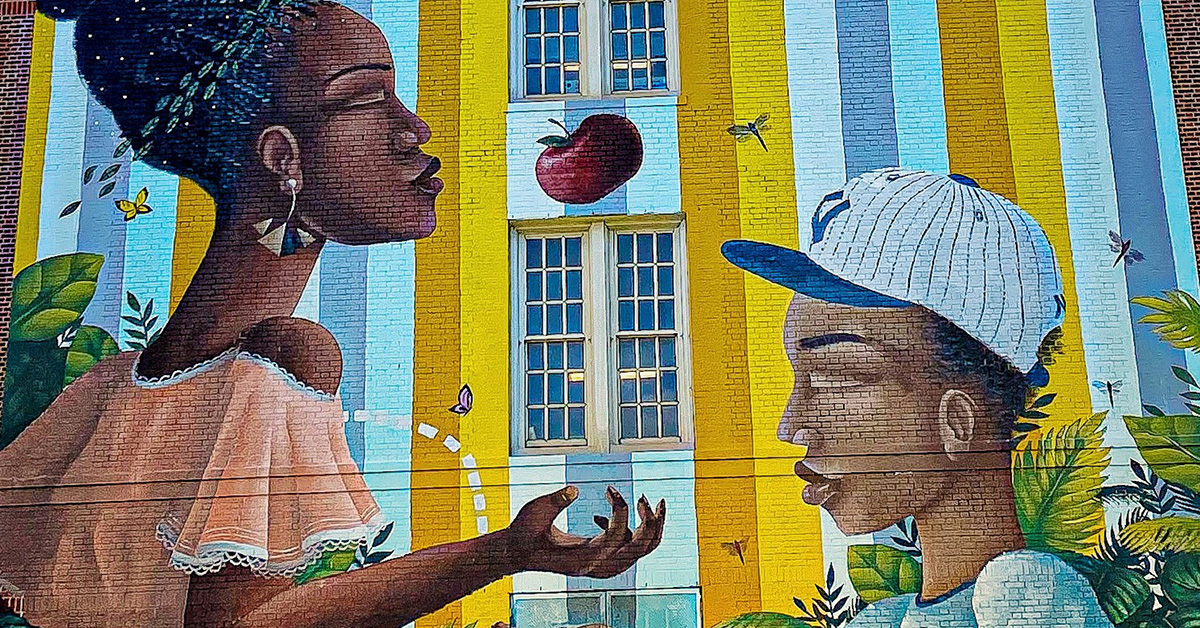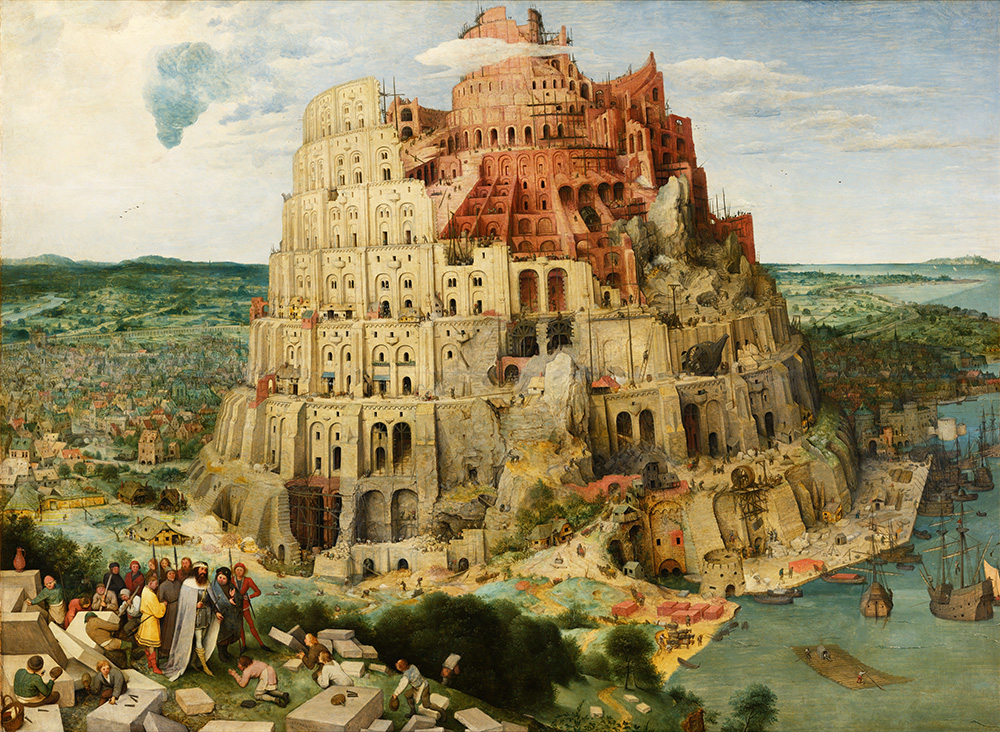

How we co-exist in pluralist, multicultural societies is one of our defining socio-political challenges. Increasingly we find that our differences are experienced as divisions, and societies, communities and even churches polarise as a result. The way forward is arguably not so much about finding what holds us together, but may rather be about learning how to constructively live with difference.
Encountering difference can be unsettling. Being faced with an “alternative truth” can make us defensive if we experience it as a threat to our identity. But appreciating one another’s differences does not mean having to endorse convictions that we find incompatible with our own. First and foremost, it is an expression of neighbourly love, of affirming the existence and presence of another person, another group, another social identity. One thing that can help to transform this defensiveness into an openness towards the other is seeing difference as an opportunity for a conversation. This is what jurist Frauke Rostalski calls discourse vulnerability. If we learn to empathise with another’s situation, a conviction that might have seemed utterly untenable to us may become understandable. This, in turn, can be an important building block of relationships in increasingly fractured and polarised societies.
Being rooted in modernist, Western, evangelical traditions, as I am, I have found myself challenged as my research has brought me into contact with different perspectives, even in how communities read the Bible. Here are some examples.
The Tower of Babel: Is diversity a curse or a blessing?
The Tower of Babel story seems so clear that its interpretation is taken for granted: humanity united by a common language became advanced enough and arrogant enough to try to rival God. God (ironically) descended on their structure that was to reach the heavens and destroyed their unity by dividing them into a multitude of languages. Thus human diversity is a curse, a punishment, and will be overcome in the kingdom of God when we become “neither Jew nor Gentile” in Christ.
Since the message of the story seems self-evident, Western readers may doubt that they read this story through a lens. But interpretations that have a different cultural starting point may see the story unfolding in a different way. Néstor Míguez offers an alternative reading that reflects his interactions with the indigenous Qom people in Argentina.¹
He points out that Genesis 10 speaks of the birth of nations with their languages and territories. Babel is founded by Nimrod (10:8-12), a “mighty warrior” and empire builder. In Genesis 11, the whole land having one language (11:1)² and the migration of a people into a new territory with fortifications and a tower suggests to Míguez the exercise of imperial power – empire building that required enslavement, control and oppression. Míguez sees no mention of defying God, but rather of imposing their power upon the rest of humanity.³ Common language is a creation of the empire and it suppresses the divinely ordained diversity evident in chapter 10. So God descends not to punish with division but to restore: “in the biblical tradition, when God descends from heaven it is a liberative act.”⁴ God halts imperial ambitions and ensures other people’s freedoms to live and speak as they desire.
The Qom people in Argentina still suffer the effects of their colonial subjugation. Such a re-reading of God’s authoritative word serves to vindicate their identity, language and culture, and it offers an alternative to some of the interpretations of the Bible that were used to demonise their pre-Christian identities.⁵

The Parable of the Talents: The principles of God’s kingdom or their opposite?
Similarly, the dominant interpretation of the Parable of the Talents (Matt 25:14-30) in the West encourages mindfulness of the gifts that God has given to us, even implying that there would be dire consequences for those not being faithful with them. But where does the idea come from that the master, who entrusted different amounts of money to his servants, is to be identified with God?
Re-reading the story from the context of the peasant society Jesus was living in can help us consider some aspects that are often overlooked:
Luise Schottroff suggests that the introductory words, “The kingdom of God is like,” would sometimes better be translated as, “Compare the kingdom of God to,” inviting comparison or even contrast, not direct equivalence.⁶ In this way, the parable takes seriously the exploitative structures of an economy that favoured the rich at the expense of the poor. The kingdom of God, by contrast, turns upside-down the world that is characterised by “Whoever has will be given more”. It is generosity towards those who had their little taken away that determines the true king’s allocation of reward.
The point in reconsidering these texts is not to dismiss one interpretation and to elevate another. The point is to understand that everyone’s interpretation of the world and Scripture is shaped by the histories of our families and nations, by our traditions, by our languages and economic circumstances. Even our reading of the Bible should provoke conversation and empathy, not divisiveness.

Theology and its languages
As the Bible is translated, the gospel is contextualised to other conceptual worlds. As it moves into new places and languages, sheds its foreignness and becomes indigenous, doctrine may take different shapes.
In my research, I studied a reformed denomination in South Africa that retains strong connections to Western, English-speaking traditions. Based on 1 Timothy 2:12, women are prohibited from preaching in church services but not from playing other active and important roles, including the giving of testimonies. This argument is more difficult to make in isiXhosa – a language spoken by many members of the denomination. In isiXhosa, there is one word for preaching, prophesying, or giving one’s testimony. The prophetess Anna in Luke 2:36 could legitimately be called a preacher! Since isiXhosa-medium churches don’t distinguish between preaching and other forms of proclamation, some may end up stricter, preventing women even from sharing testimonies in church, or more permissive, allowing women to preach and give testimony.⁷
Context matters, including the way we make sense of the world through our languages.
Two ways to live? How self-centred is our mission theology?
The missiological anthropologist Darrel Whiteman tells of a time he wondered openly how his Japanese colleague, a theology professor, coped with the tension of being Japanese and a Christian.⁸ The response he got was, “What tension?” “I love the Buddha. … There’s no question, Buddhism has had a profound influence on my life. But I love Jesus so much more.” Many people in the West might struggle to reconcile a “love for Buddha” with a genuine Christian witness. Whiteman points out how people, depending on their cultural-linguistic backgrounds, are used to different ways of thinking of possibilities. Whereas the Western, Greek-inspired tradition tends to think in either/or categories, many Asian cultures and languages tend to make distinctions in degree rather than in kind.
This prompts the question: In intercultural theology or cross-cultural mission, do we expect (or oblige) people to accept our way of thinking when they accept the Lord Jesus or are we able to adjust to their worldview and find ways of communicating the gospel that meets people where they are?
How to harness vulnerability for fruitful relationship-building
Responding to differences with patience and curiosity rather than premature judgement is demanding. It requires entertaining the possibility that my own perspective is not universal, objective or absolute. While I may have good reasons for my own convictions, others may have such, too. Reminding ourselves that all people were created in God’s image can help us to grow in grace. It can also strengthen our trust in the working of God’s Spirit in other people, so that we become free to relate to them where they are, on their terms.
Living in this way entails a healthy measure of vulnerability, and the potential that others would make themselves vulnerable to us as well. That they would show us grace and patience where we may come across as narrow-minded, domineering or ignorant. In such encounters of mutual frailty, we may find not just that our vision of self and others is expanded, but our vision of God too.
Marcus Grohmann (B.A., M.A. in African Studies, PhD in Reconciliation Studies) served in university ministry with the German branch of IFES. He is now a postdoctoral researcher at the Beyers Naudé Centre for Public Theology, Stellenbosch University.
1. Néstor O. Míguez, “Comparative Bible Study, Genesis 10–11: An Approach from Argentina,” Ministerial Formation 100 (2003): 57–65.
2. This is a legitimate translation of the Hebrew, which may not intend all of humanity.
3. Míguez, “Comparative Bible Study,” 62.
4. Míguez, “Comparative Bible Study,” 63.
5. Míguez, “Comparative Bible Study,” 57.
6. Luise Schottroff, Die Gleichnisse Jesu (Gütersloh: Gütersloher Verlagshaus, 2005), 295. See also 136f.
7. Marcus Grohmann, “From Celebration to Utilisation: How Linguistic Diversity Can Reduce Epistemic Inequalities,” Verbum et Ecclesia 45, 1 (2024): a2981, 5.
8. Darrell L. Whiteman, Crossing Cultures with the Gospel: Anthropological Wisdom for Effective Christian Witness, Kindle edition (Grand Rapids, MI: Baker Academic, 2024), 43.
The Kirby Laing Centre for Public Theology in Cambridge. Charity registered in England and Wales. Charity Number: 1191741
Kirby Laing Centre, Office 1, Unit 6, The New Mill House, Chesterton Mill, French’s Road, Cambridge, CB4 3NP
© 2025 The Kirby Laing Centre for Public Theology in Cambridge